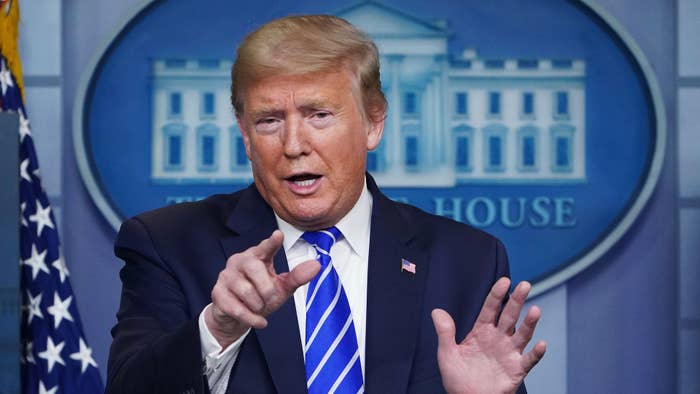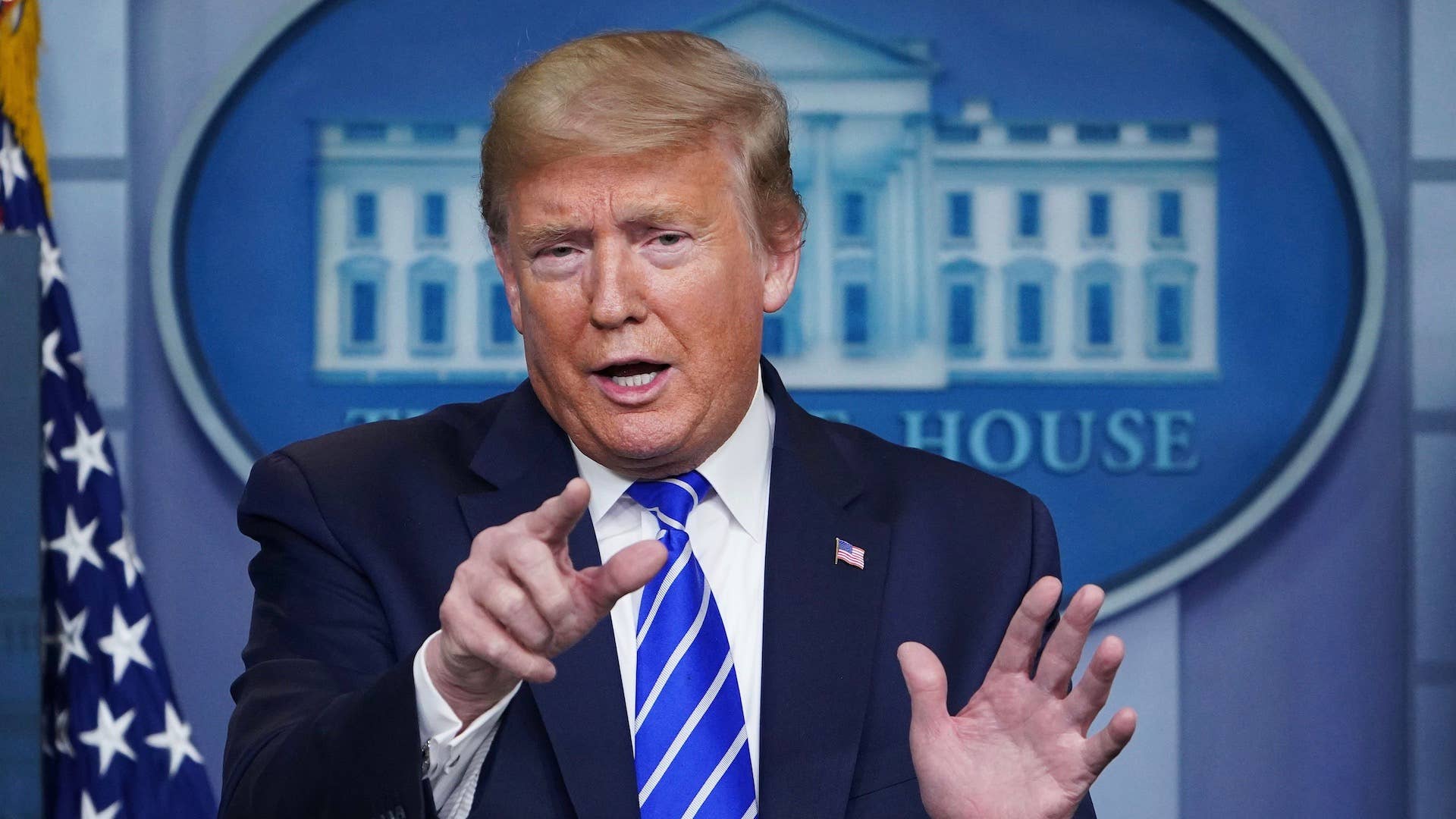
UPDATED 4/24, 1:45 p.m. ET: After facing mounting backlash, Trump is now claiming he was being "sarcastic" when he suggested that people should look into injecting disinfectant as a possible COVID-19 treatment.
#BREAKING: President Trump says remarks about heat, light, disinfectant were sarcastic: "I was asking a question sarcastically to reporters like you just to see what would happen." https://t.co/lPysHfFKBb pic.twitter.com/mtY7dZgNnj
See original story below.
President Donald Trump faced additional backlash this week after a study concluded hydroxychloroquine, a drug he promoted as a possible "game-changer," was not only ineffective in treating coronavirus, it was also harmful to patients. You'd think this report would cause Trump to think twice before recommending a potential COVID-19 cure, right? Wrong.
During Thursday night's White House press briefing, Trump suggested the possibility of "injecting" humans with disinfectants to kill the virus. He made the comments after William Bryan, under secretary for Science and Technology at the Department of Homeland Security (DHS), told reporters there is evidence that bleach kills COVID-19 in five minutes, while isopropyl alcohol (rubbing-alcohol antiseptic) can kill it within 30 seconds.
"I see the disinfectant, where it knocks it out, in a minute. Is there a way we can do something like that?" Trump asked during the briefing. "By injection, inside, or almost a cleaning, because you see it gets in the lungs and it does a tremendous number on the lungs. So it would be interesting to check that. You're going to have to use medical doctors, right? But it sounds interesting to me."
Bryan had also told reporters that studies have shown COVID-19 does not do well when exposed to sunlight or warm, humid conditions—a popular theory that has been met with skepticism due to the virus' presence in tropical regions like Southeast Asia and Brazil.
"Our most striking observation to date is the powerful effect that solar light appears to have on killing the virus—both surfaces and in the air," Bryan said. "We’ve seen a similar effect with both temperature and humidity as well, where increasing the temperature and humidity or both is generally less favorable to the virus."
These findings also gave Trump an idea.
"So, supposing we hit the body with a tremendous—whether it's ultraviolet or just very powerful light—and I think you said that hasn't been checked but you're going to test it," Trump said. "And then I said, supposing you brought the light inside of the body, which you can do either through the skin or in some other way. And I think you said you’re going to test that too. Sounds interesting."
Bryan later emphasized he and his team were not encouraging people to go out in the sun and violate social distancing orders, as there is no concrete evidence that sunlight can kill the virus in humans.
"Maybe you can, maybe you can't ... I’m not a doctor," Trump said about heat and light as a potential cure. "But I'm, like, a person that has a good you-know-what."
Trump then addressed Dr. Deborah Birx, a member of the White House Coronavirus Task Force, asking if she had "ever heard" of heat and light being used as a virus cure.
"Not as a treatment," Birx responded. "I mean, certainly ... when you have a fever it helps your body respond. But I’ve not seen heat or light."
"I think it’s a great thing to look at," Trump said.

